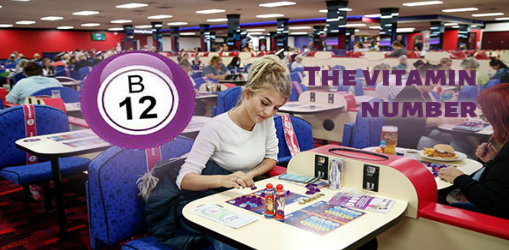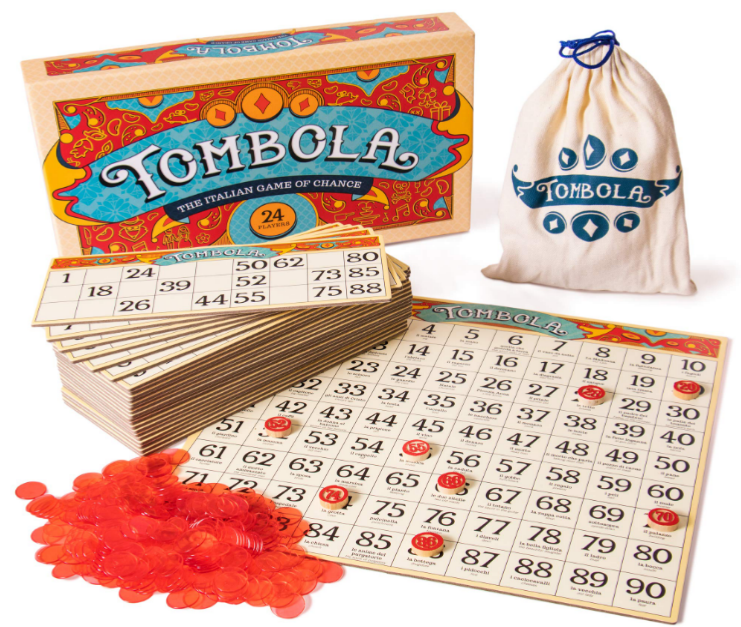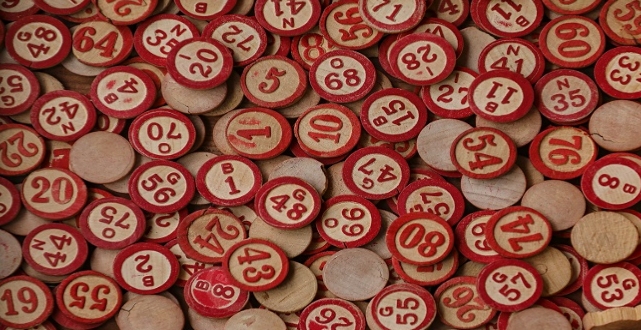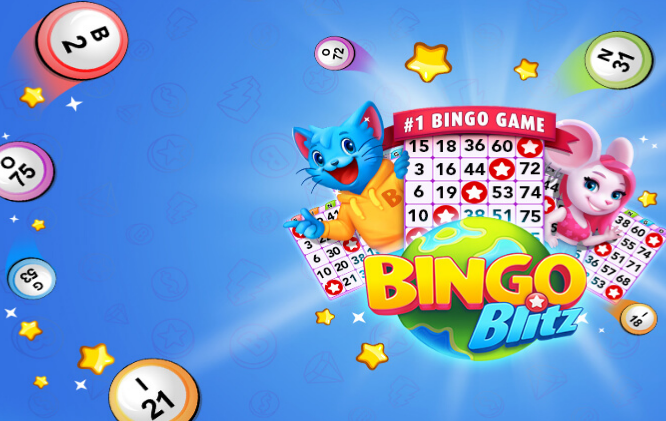Bingo varies by name and style worldwide. In the UK and Australia, it’s “Housie,” while Brazil has “Jogo do Bicho.” Despite regional adaptations, the game’s core essence remains similar.
Bingo in North America
Bingo, a popular game of chance, has roots in various parts of the world. In North America, particularly in the USA and Canada, the game has carved its own niche, encompassing both cultural and social aspects.

Bingo in the USA: Charity and Church Events
Many communities, especially during the early and mid-20th century, saw bingo as an engaging way to raise funds for important local initiatives.
For instance, in the state of Pennsylvania, the game became a staple at county fairs and church basements. These events were not only about raising money but also about strengthening community ties. Locals would gather, often on weekends, to play bingo, win prizes, and more importantly, to socialize.
The game’s simplicity, combined with the thrill of the win, made it an instant hit. Various church groups and non-profits across the country quickly adopted the game. The Bingo Licensing Law later regularized the game, ensuring that proceeds went to charitable causes.
Canadian Bingo Variations
Canada, being the northern neighbor of the USA, also embraced bingo, but with its own unique twists. One such variation popular in parts of Canada is the “U-Pick’Em bingo”, where players choose their own numbers, enhancing their engagement and excitement.
In provinces like Ontario, bingo halls became prominent, especially in urban centers. These establishments offered not just bingo games but also became hubs for socializing and community engagement. The Canadian version of the game is similar to the American one, with minor differences in rules and card designs.
Many Canadian bingo enthusiasts also relish the electronic version known as E-Bingo, which is steadily gaining popularity in various provinces, offering players a modern twist on the classic game.

Bingo in Europe
Bingo, a game that’s both entertaining and sociable, has been adopted and adapted by many European countries. Each nation has added its own unique touch to the game, making it a reflection of their culture and traditions.
United Kingdom: Housie and Traditional Bingo Halls
Originating in the 18th century, it’s a staple in many coastal towns, where large bingo halls beckon both locals and tourists. The game’s appeal isn’t just about winning; it’s also about the camaraderie and shared experience.
Many remember the iconic calls like “Two little ducks, 22” and “Unlucky for some, 13,” which added a touch of fun and memorability. The National Bingo Game is one such event that garners attention from across the country, making winners out of everyday people.
Italy: The Birthplace of “Beano”
Italy claims the historical birthplace of bingo.
In modern Italy, bingo remains a popular pastime.
Spain: Bingo and its Cultural Significance
Spain, a country known for its rich culture and traditions, has warmly embraced bingo. The game became popular in the 1980s and quickly found its way into many Spanish households and local cafés. Spaniards not only play the game for its monetary rewards but also for the sheer fun and togetherness it brings.
Major cities like Madrid and Barcelona have upscale bingo halls where players can enjoy gourmet meals and fine wines while they play. The Spanish variant sometimes uses tambolas, a popular form that many in the country cherish.

France: Le Loto
Played passionately across the nation, it’s often an eventful affair with animated callers and eager participants. The French have added their signature elegance to the game, making it a sophisticated pastime. Much like its European counterparts, Le Loto serves as both an entertaining game and a platform for social interaction.
Bingo in Asia
Yet, as with many things, Asian countries have taken the game and infused it with local flavors, creating versions that resonate with their unique cultures.
Japan: Han-game and its Modern Transformation
Japan introduced a variation of bingo known as “Han-game.” Traditionally played during festivals and family gatherings, Han-game carries with it the essence of Japanese tradition and the excitement of modern gaming. With its roots firmly planted in local culture, the game serves as both entertainment and a bridge between generations.
In recent years, Japan has witnessed a surge in the popularity of electronic bingo, an exciting fusion of traditional Han-game and modern technology. Arcades and gaming centers, such as those in Tokyo’s Akihabara district, often have sections dedicated to this modern iteration, attracting both young tech-savvy players and those nostalgic for traditional gameplay.
Philippines: Pan de Bingo and Local Varieties
In the Philippines, bingo has been given a delightful twist with “Pan de Bingo.” This version combines the love for the game with the country’s fondness for bread (pan). Local bakeries and cafes offer bingo cards with purchases, turning an everyday visit for bread into an exciting chance to win prizes.
Beyond Pan de Bingo, local varieties of the game thrive in community centers and festivals. The essence of ‘Bayanihan’, a Filipino term which represents communal unity and cooperation, shines through in these gatherings. Players come together, not just for the allure of winning but also for the shared joy of playing. Festivals like the Sinulog Festival often feature bingo stalls, adding to the festivities and providing an avenue for both fun and fundraising.

Bingo in South America
South America, with its vibrant cultures and passion for games, has embraced bingo in its own distinct way. As the continent is home to numerous traditions and festive spirits, the game of bingo has naturally found its place in the heart of communities, integrating itself with local customs and events.
Brazil: Jogo do Bicho and its Influence
When it comes to bingo, Brazil offers a unique spin with “Jogo do Bicho,” which translates to “Animal Game.” While not bingo in the traditional sense, Jogo do Bicho shares the lottery-based excitement, where players bet on animals instead of numbers.
Originating in the 19th century, Jogo do Bicho started as a promotional event for a zoo in Rio de Janeiro. The game rapidly grew in popularity, becoming an integral part of Brazilian culture. In various regions of Brazil, people gather in local venues to place their bets, with hopes that their chosen animal will emerge as the winner.
Bingo in Oceania
Oceania, comprising the vast expanse of islands in the Pacific Ocean, has a diverse range of cultures and traditions. In this region, bingo has managed to seep into the fabric of society, adapting and aligning itself with local customs, creating a unique blend of traditional and modern gameplay.
Australia: Housie Down Under
In Australia, bingo goes by the name “Housie.” Just like its counterparts across the globe, Housie in Australia is a cherished game, bringing communities together in both urban and rural settings. From the bustling cities of Sydney and Melbourne to the serene landscapes of the Outback, you’ll find Aussies engrossed in the game, marking their tickets and waiting for that winning call.
Housie nights are often major events in local communities, where individuals not only play for the chance to win but also to socialize, share stories, and enjoy each other’s company. The game also holds a special place in the hearts of the older generation, often being a highlight at retirement homes and community centers. Charity Housie is another popular version, where proceeds go to noble causes, showcasing Australia’s spirit of community and giving.
New Zealand: Kiwi Bingo Traditions
In the scenic landscapes of New Zealand, bingo has found a welcoming home.
Maori communities, the indigenous people of New Zealand, have incorporated bingo into their community events, making it an integral part of their gatherings. These events serve dual purposes: a fun game for the community and a way to raise funds for local initiatives.
The Rotorua region, known for its geothermal activity and Maori heritage, is one of the places where bingo nights are a regular feature. Players, both young and old, come together, hoping for a full house and cherishing the shared laughter and camaraderie that the game brings.
Bingo in Africa
Africa, a vast continent known for its diverse cultures, landscapes, and rich history, has also become familiar with the game of bingo. As with other continents, Africa has managed to adapt the game to resonate with its distinct cultural nuances, making it more than just a pastime but a reflection of its dynamic societies.
South Africa: Bingo and its Growing Popularity
South Africa, with its blend of indigenous and colonial influences, has witnessed a surge in the popularity of bingo over the years. The game has transcended beyond just a recreational activity to become an exciting social event that brings together people from various backgrounds.
But it’s not just in urban areas; rural communities have also adopted the game, using it as a platform for social interaction and community building.
South African bingo has its unique flair, often accompanied by local music genres like Kwaito and jazz, making each game a rhythmic and lively affair. This fusion of traditional elements with the modern game provides players with an immersive cultural experience.

